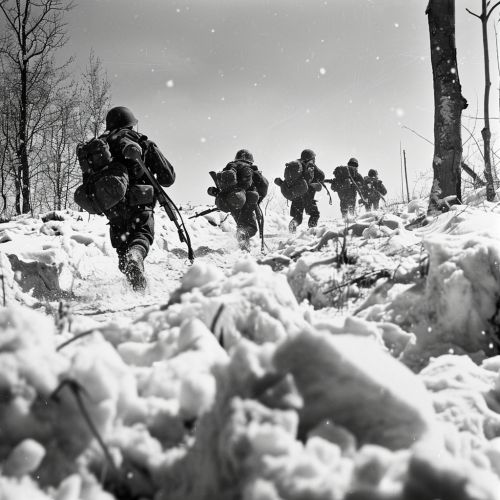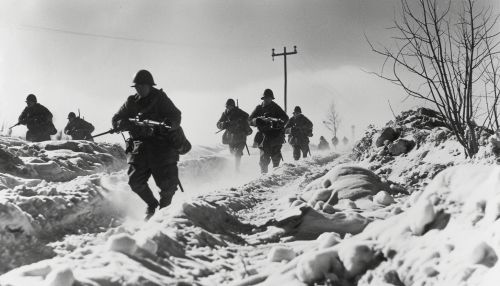Operation Typhoon
Background
Operation Typhoon was a major military operation during the Second World War, launched by the Axis against the Soviet forces defending the capital city of Moscow. The operation, which began in October 1941, was the culmination of the German Barbarossa offensive aimed at capturing the Soviet capital and knocking the Soviet Union out of the war.


Prelude to the Operation
In the summer of 1941, the German Wehrmacht's rapid advance through the Soviet Union had been halted at the Battle of Smolensk. The delay allowed the Soviet forces time to prepare their defenses and to mobilize reserves. The German High Command, under the leadership of Hitler, decided to launch a decisive offensive against Moscow, codenamed Operation Typhoon.
The Operation
The operation began on October 2, 1941, with the German forces launching a three-pronged attack against the Soviet defenses. The northern pincer, led by Army Group Center, aimed to encircle Moscow from the north, while the southern pincer, led by Army Group B, aimed to do the same from the south. The central force was to break through the Soviet front lines and capture Moscow.
Outcome
Despite initial successes, the German forces were unable to capture Moscow. The Soviet Red Army launched a counter-offensive in December 1941, pushing the German forces back from the outskirts of Moscow and marking the first major defeat of the Wehrmacht in World War II. The failure of Operation Typhoon marked a turning point in the war, as it signaled the beginning of a series of Soviet victories that would eventually lead to the fall of Berlin in 1945.
Aftermath
The failure of Operation Typhoon had significant strategic implications for the Axis powers. It marked the end of the German offensive in the East and the beginning of the Soviet counter-offensive that would eventually lead to the fall of Berlin. The battle also had a profound psychological impact, shattering the myth of German invincibility and boosting Soviet morale.
